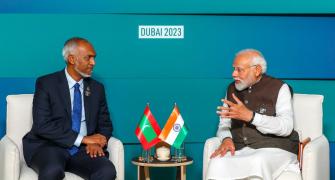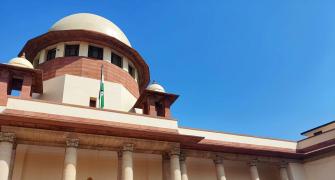The MoU was meant for setting up a mega steel venture in the state, envisaging investments of Rs 40,000 crore, ($10 billion), the largest ever foreign direct investment in any single project in the country.
The cancellation of the signing of the MoU follows disagreement between the two sides on export of ore.
"Posco had sought permission to export a substantial portion of ore raised from the mines to be allotted to it and the state government did not agree to the condition owing to policy constraints," an official told Business Standard.
This had led to the failure of the ongoing talks between Posco and the Orissa government to prepare the ground for the signing of the MoU.
"Therefore, we are not going ahead with the signing of the MoU on April 14," the official said. He, however, quickly added, "All is not lost on the project and efforts are on to continue the dialogue with the company."
Posco had asked for a one-billion tonne iron ore reserve in Orissa for its proposed 12-million tonne steel plant slated to come up at Paradip.
The company had pegged its captive ore requirement for use in the plant at 600 million tonnes and sought permission for exporting the rest 400 million tonnes through its mining partner in the project, BHP Billiton of Australia.
However, the present mineral policy of the state government does not allow export of ore from the mines allotted to a company and instead, emphasises captive use of ore for value-addition purposes within the state.
The South Korean company had come up with several models to circumvent the constraints. One of them, based on a barter principle, suggested that BHP Billiton would export ore and bring in coal for production of coke to cater to the needs of the Indian steel industry.
Another model was that the company would export only the high alumina content ore and import the normal variety for use in the plant. However, the state government did not agree to any of these models, for fear of violation of its own principles and criticism.
This had led to the collapse of the talks, sources said.
In fact, Orissa Steel and Mines Minister P Behera had clarified in the Assembly last week that, "Posco will be allotted only as much ore as it required, based on the installed capacity of the project".
Stating that the mines allotment policy of the Orissa government veered around the idea of value-addition of minerals within the state, the source pointed out the discussion with Posco on the proposed venture was guided by these principles of the mineral policy.
The Posco proposal had even created fissures in the ruling Biju Janata Dal with the leader of the party in the Lok Sabha and former Union Steel Minister Brajakishore Triapthy shooting off a letter to the Prime Minister saying the Posco project was detrimental to the interests of the state and the country.
He had pointed out that allotting huge reserves to one company, which intended to export a substantial portion of ore, would go against the interests of domestic steel companies facing ore crisis.







